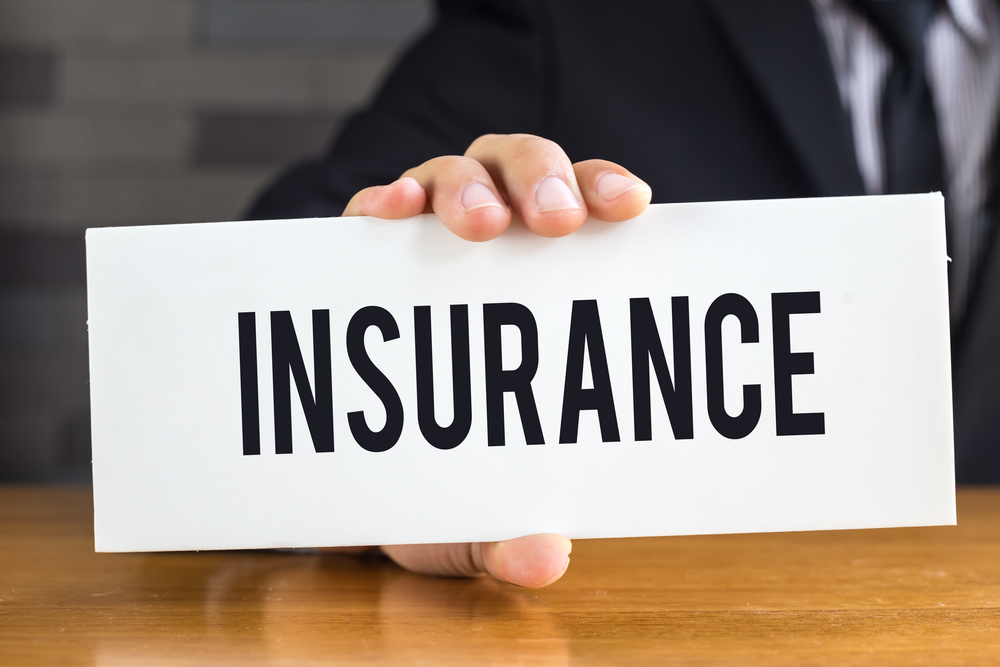Life can change in an instant. One moment you are walking down a familiar Brooklyn street, commuting on the LIRR from Suffolk County, or working at a construction site, and the next you are dealing with an injury that turns your world upside down.
In the confusing aftermath, you are faced with medical appointments, mounting bills, and calls from insurance companies. A pressing question often arises: "Is this serious enough for a lawyer?" The answer is not always simple, but making the right choice is critical for protecting your well-being and financial future.
If you feel lost after an unexpected injury, knowing the right time to hire a Brooklyn personal injury lawyer is your most important decision.
- An injury can disrupt every aspect of your life, from your health to your finances.
- It is normal to feel unsure about how to handle the situation or whether you need legal help.
- Understanding the signs that point to needing legal guidance is the first step toward taking control.
Schedule a Free Case Evaluation
Decisive Moments: Clear Signs You Should Hire a Personal Injury Lawyer
While every situation is unique, certain circumstances strongly suggest that navigating the claim process alone could be a mistake. Insurance companies have teams of professionals working to protect their bottom line; having a professional on your side levels the playing field.

If you find yourself in any of the following situations, it is a clear signal that you should consider seeking legal counsel.
- Recognizing these signs can help you act in a timely manner to protect your rights.
- Never assume your case is too small or too straightforward without first understanding the complexities involved.
- The goal is to ensure you are not left to face a difficult process without support.
You Suffered Serious or Long-Term Injuries
This is the most critical factor. If your injury is anything more than minor, you should immediately consider speaking with an attorney. A "serious injury" is not just a legal term; it is a practical reality that significantly impacts your life.
- What Qualifies as Serious: This includes injuries requiring surgery, a hospital stay, or extensive physical therapy. It also covers conditions like broken bones, traumatic brain injuries (TBI), spinal cord damage, or any injury that results in permanent scarring, disfigurement, or a chronic pain condition.
- The Full Cost of Injury: A lawyer helps to calculate the true, long-term cost of your injury. This goes beyond current medical bills to include future surgeries, ongoing rehabilitation, necessary home modifications, and the cost of prescription medications.
- Documenting the Impact: Proving the full extent of your damages requires meticulous documentation. A legal professional works with medical providers to gather the necessary records and reports to build a strong case reflecting your recovery journey.
Fault Is Disputed
In a perfect world, the person responsible for your injury would admit their mistake. In reality, it is common for the other party to deny responsibility or even try to blame you for what happened.
This is especially true in car accidents on busy roads like the Brooklyn-Queens Expressway or in complicated slip-and-fall cases.
- The Concept of Comparative Negligence: In New York, a rule called "pure comparative negligence" is used. This means you can still recover damages even if you were partially at fault for the accident, but your percentage of fault will reduce your compensation. Insurance companies often exploit this by trying to assign as much blame to you as possible to reduce their payout.
- Investigation is Key: A lawyer can launch an independent investigation to establish exactly what happened. This could involve hiring accident reconstructionists, interviewing witnesses who were at the scene, and gathering evidence like security camera footage from a nearby Queens bodega or traffic light camera data.
- Fighting for the Truth: Without an advocate, you could be unfairly blamed for an accident you did not cause, potentially leaving you with no financial recovery for your injuries.
The Insurance Company Is Playing Hardball
Insurance adjusters are trained negotiators. They work for the insurance company to investigate claims and determine their value. While they may sound friendly and helpful on the phone, their job is to resolve your claim for the lowest possible amount.

- The Quick, Lowball Offer: It is a common tactic for an adjuster to offer you a quick settlement soon after the accident. This offer is almost always far less than what your claim is actually worth and is tempting because you have bills to pay. Accepting it means you give up your right to seek any more money for the injury, even if your condition worsens.
- Requesting a Recorded Statement: An adjuster will often ask you to provide a recorded statement about the accident. You are not obligated to do this. They can use your own words, taken out of context, against you later to deny or devalue your claim. A lawyer can handle all communications with the insurance company for you.
- Delay and Deny Tactics: Some insurance companies will drag their feet, hoping you will get frustrated and give up or accept a low offer. They may also deny the claim based on a technicality. A lawyer knows how to counter these tactics and hold the insurer accountable.
Multiple Parties May Be Responsible
Some accidents are not straightforward. The negligence of several different people or companies may have caused your injury. This adds layers of legal complexity that are nearly impossible for a layperson to manage.
- Construction Accident Example: If you are injured on a construction site in Westchester, there could be multiple responsible parties. This can include the general contractor, various subcontractors, the property owner, and the manufacturer of a faulty piece of equipment.
- Multi-Vehicle Accidents: A car pile-up on the Long Island Expressway can involve several drivers, each with their own insurance company, all trying to point the finger at someone else.
- Sorting Out Liability: A personal injury lawyer can identify all potential sources of recovery and navigate the complicated web of insurance policies and legal responsibilities to ensure that every liable party is held accountable.
The Importance of Timing: Why You Should Act Promptly
One of the biggest mistakes people make is waiting too long to explore their legal options. The period immediately following an accident is a critical window of opportunity. Acting quickly can significantly strengthen your case and prevent costly errors.
Deciding when to hire a personal injury lawyer is often about preserving your ability to build the strongest case possible.
- The Statute of Limitations: New York has a law called the statute of limitations, which is a strict deadline for filing a lawsuit. For most personal injury cases, this deadline is three years from the date of the injury. If you miss this deadline, you lose your right to sue forever. While three years sounds like a long time, building a strong case takes time.
- Preserving Critical Evidence: Evidence disappears quickly. Witnesses move or their memories fade. Security camera footage is often recorded over within days or weeks. Skid marks on a road wash away. The sooner your lawyer can start investigating, the better their chances of preserving this crucial evidence.
- Getting Ahead of the Defense: The other side's insurance company starts building its case against you from day one. By hiring a lawyer early, you ensure that your side is also being built and protected from the very beginning, preventing the other side from getting a head start.
Can I Handle My Own Personal Injury Claim Without a Lawyer?
It is tempting to think you can save money by handling your own claim, especially if your injuries initially seem minor. For a very small claim with no dispute about fault and minimal injuries that heal quickly, it might be possible.
However, this is a significant gamble with high stakes.
- The Risk of Undervaluing Your Claim: Most people do not know the true value of their claim. They think about their current medical bills but forget about future medical needs, lost wages, and compensation for pain and suffering, which is a legal term for the physical and emotional distress the injury has caused.
- You Are Outmatched: You would be negotiating against a professional adjuster who handles hundreds of claims a year. They understand the law and negotiation tactics in a way that an unrepresented person does not. This creates a significant power imbalance.
- Complex Legal and Medical Issues: Proving your case often requires an understanding of complex medical records and legal principles. A lawyer knows how to present this information effectively to argue for the full value of your damages.
Finding Your Path Forward
Deciding to hire a personal injury lawyer protects you and your family. It is about acknowledging that you are facing a difficult challenge and you need the right guidance to get through it.
From serious injuries and disputed fault to dealing with difficult insurance companies, the signs often point toward the need for professional guidance. An attorney can lift the legal burden from your shoulders, allowing you to focus on the most important thing: your recovery.

At Queller Fisher, we understand the uncertainty and stress that follow a serious injury. Our team provides clarity and support to people across New York City, including Brooklyn and Queens, as well as the surrounding counties.
We handle the complexities of personal injury claims so our clients can focus on rebuilding their lives.
- We approach each case with a commitment to our clients' well-being.
- Our firm has experience handling various injury cases, from medical malpractice to car and construction accidents.
- To discuss your situation, you can reach our New York City office at (212) 406-1700 or our White Plains office at (718) 892-0400.
Your Questions Answered
How much does it cost to hire a personal injury lawyer?
This is one of the most common and important questions. Most reputable personal injury lawyers work on a contingency fee basis, which removes the client's financial risk.
- What is a Contingency Fee: This means the lawyer only gets paid if they win your case, either through a settlement or a court verdict. There are no upfront fees or hourly charges.
- How is the Fee Calculated: The lawyer's fee is a pre-agreed-upon percentage of the total amount of money they recover for you. This percentage is standard and will be clearly explained in a written agreement.
- No Recovery, No Fee: If you do not receive any financial compensation for your injuries, you do not owe the lawyer any legal fees. This arrangement makes justice accessible to everyone, regardless of their financial situation.
What kind of information should I have ready for my first meeting with a lawyer?
Coming prepared to your initial consultation can help the lawyer get a clear understanding of your case right from the start. It is okay if you do not have everything; just bring what you can.
- Accident-Related Documents: This includes a copy of the police or incident report, the other party's information, and any letters or emails you have received from an insurance company.
- Photos and Videos: Bring any pictures or videos you took of the accident scene, your vehicle (if applicable), and your injuries.
- Medical and Financial Information: Gather any medical bills you have received, your health insurance information, and any documentation showing time you have missed from work.
What if my injury happened at my friend's house? I don't want to sue my friend.
This is a very common concern, and it is completely understandable. The good news is that in most cases, you are not suing your friend or family member directly.
- The Claim is Against an Insurance Policy: When you are injured on someone's property, the claim is almost always made against their homeowners' or renters' insurance policy. These policies exist specifically for situations like this.
- Preserving the Relationship: Your friend pays premiums for this insurance coverage. Filing a claim is simply asking their insurance company to do the job it was paid to do: cover the damages for an injury that occurred on the property. It is not a personal attack on your friend.
Covering Your Bills: Without making a claim, you would be left to pay for all of your medical bills and cover your lost income on your own, which can be financially devastating. Filing a claim is often the only way to get the financial support you need to recover.